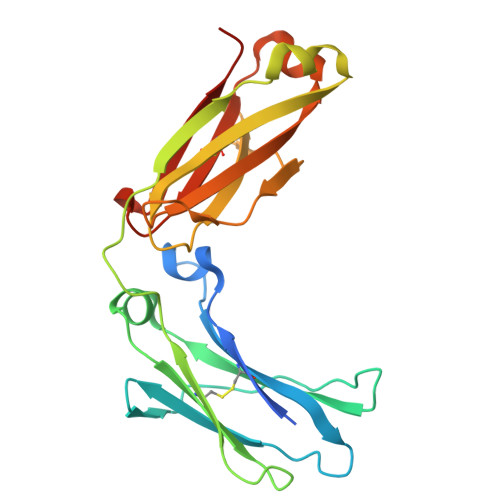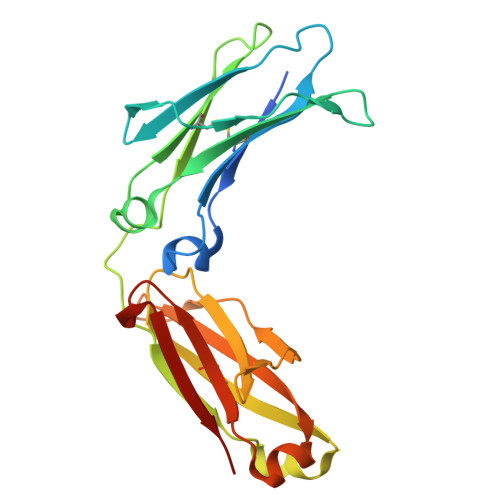Folding-mediated secretion of pure bispecific antibodies.
Tilegenova, C., Liu, T., Zhao, Q., Are, M., Zhao, Y., Choi, W.S., Bhaumik, A., Steele, R., Manieri, N.A., Turegun, B., Ni, A., Cardoso, R.M.F., Shaffer, P., Clark, D., Ernst, R., Li, W., Taylor, T., Swaminathan, S.K., Ramaraju, B., Liaw, K., Jacobs, S.A., Sharma, S., Cheung, W.C., Zwolak, A.(2025) Nat Biotechnol
- PubMed: 41057658
- DOI: https://doi.org/10.1038/s41587-025-02842-2
- Primary Citation of Related Structures:
9MVX, 9N8Q - PubMed Abstract:
Bispecific antibodies (bsAbs) can enable therapeutic mechanisms, such as dual antigen targeting or receptor agonism, that are impossible using monoclonal antibodies. BsAbs with IgG-like format (bsIgG) are comprised of two unique heavy chains, each having a cognate light chain. Co-expression of these four unique polypeptides often leads to several mispaired species that are difficult to separate from the target bsIgG due to their similar biophysical properties. Here we describe a set of mutations called ProAla that exploit a the unfolded protein response pathway of cells. ProAla heavy chains are engineered with higher folding energy barriers such that only the cognate light and heavy chains can induce folding, chaperone release and secretion. The structures of the ProAla Fab and Fc regions are identical in structure to normal antibodies, enabling maintenance of half-life and function. Mispaired polypeptides fail to secrete from the cell due to enhanced interaction with the endoplasmic reticulum chaperone BiP, resulting in increased purity of secreted bsIgGs.
- Biologics Discovery, Johnson & Johnson, Spring House, PA, USA.
Organizational Affiliation:



















